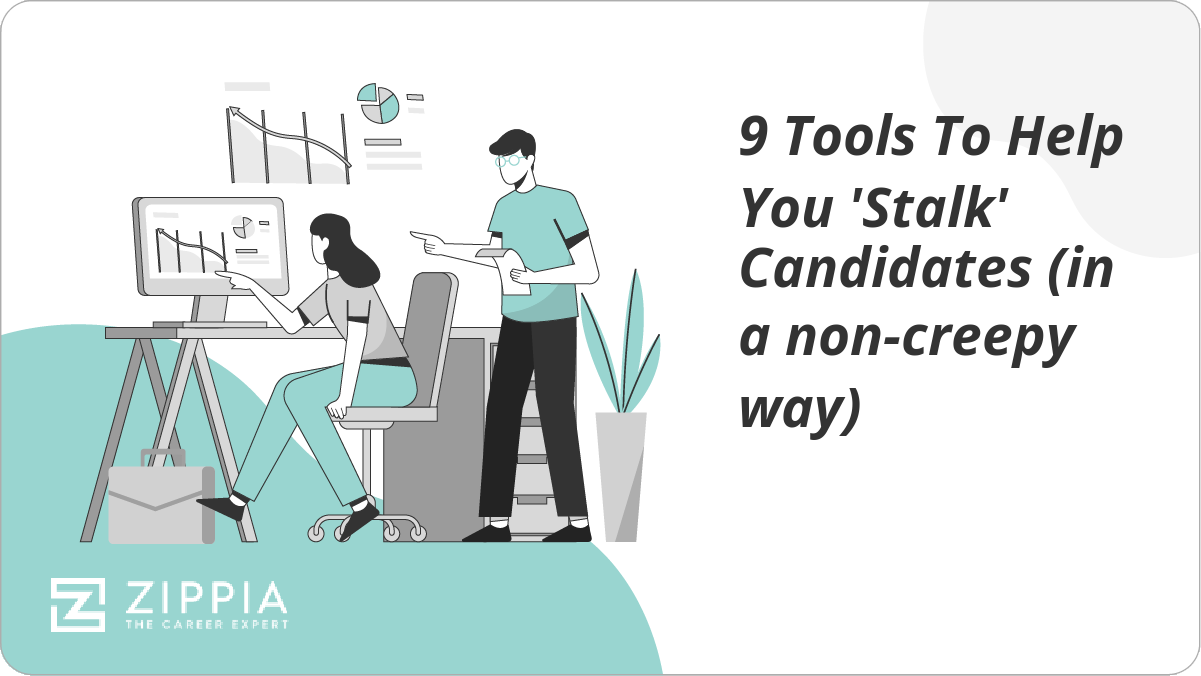Brands today are heavily focused on the overarching experience that their business creates, and for good reason. A positive user experience has been proven to impact sales and customer loyalty, which is why many companies are making it their top marketing priority.
However, one experience that is often overlooked is that of the candidates you are hiring. One of the top reasons that businesses are unable to fill their available positions is due to the experience they are creating during the hiring and interviewing process.
Key Takeaways
-
Having an unpleasant hiring process can scare away qualified candidates.
-
Communicate with your candidates through the whole hiring process — even if you aren’t moving forward with their application.
-
Don’t provide an unrealistic job overview or conduct poor interviews.

Why It’s Important To Have a Good Hiring Experience
One report found that 84% of candidates agree that the employer’s reputation is critical to know when they are applying for an available position. If your business has a less-than-stellar reputation when it comes to the recruitment process, you could lose up to half of the available candidates.
Keep in mind, top-tier talent knows what they want in a company. Any negative experiences that occur between the application to the job offer could scare them away.
4 Reasons Why Candidates Have a Terrible Hiring Experience
Is your hiring team having difficulty attracting or retaining valuable candidates? If so, it is quite possible that your recruiting structure has a major flaw ruining the candidate experience. Let’s talk about four of the big ones.
-
You’re Leaving Them in the Dark
No one likes being left in limbo. Chances are, in your romantic life you (or your romantic interest) have had to ask the question: “So, where do we stand? What are we?” Knowing your relationship status is critical to help things move to the next step. And the same rule applies during the hiring process as well.
When it comes to hiring, no news is generally bad news. Even if a candidate’s application has been rejected or your business has decided to go with another person, it is best to let them know right away.
If your HR team experiences high volumes of candidates (or simply has the habit of forgetting to follow up), try an automated recruiting tool that does this task for you.
Candidates find it extremely frustrating when a potential employer goes radio silent, especially after an application is received or an initial interview is conducted.
While an immediate response is not totally necessary, two-thirds of candidates will start looking elsewhere if it takes any longer than two weeks to hear back.
Furthermore, 80% of job seekers will not pursue the opportunity with a business if they don’t notify them of their status in the application process. Be sure that your recruiters take the extra step to let each candidate know where they stand for a more transparent process.
-
They Can Tell the Job Overview is Unrealistic
Hyping up your company culture and talking about the perks and “fun” parts of the job is definitely necessary and important. Of course, you want to make your company appear as attractive as possible when you are seeking out new talent.
But if that is all you are talking about, it could sound a little too good to be true to a skeptical candidate.
Keep in mind, nearly three-quarters of job seekers will do their own research before applying. Much of this research will include looking at your business’s reviews from previous employees.
If your job description promises “flexible” work hours, but past workers complain of long nights stuck at the office, this will scream to your candidates that things are not what they appear to be.
Creating an engaging pre-employment assessment experience and job preview can provide candidates with a far more realistic look at the job and how well they fit the mold.
During this assessment, applicants can get a sense of the day-to-day life on the job. The results show both the candidate and the recruiter whether or not they would be likely to succeed in the desired position, making the entire experience far more pleasant and honest than the typical job interview.
-
The Interview Is Incredibly Basic
There’s nothing worse than meeting up with a candidate who is clearly not prepared for an interview.
Little details like showing up late, appearing disheveled, not knowing basic details about the position, or fumbling over questions will instantly show a recruiter that the applicant is probably not a good fit.
However, the same goes for the person who is conducting the interview. Candidates are typically judging the interviewer in the same way, and if the interview experience leaves them rather unimpressed, chances are they will not pursue the opportunity.
Make sure that you take the time to review each and every candidate’s resume before you meet so that you are familiar with their job history. Plan your interview approach so that it is specific to them.
Try asking some questions that could signal their potential as a good culture fit or ask them to expound upon their past experiences and education.
Preparing ahead of time and putting even a little bit of thought and effort into the interview can go a long way and show your candidates that your business is truly interested in them as an individual. Ultimately, no one likes a cookie-cutter interview.
-
You’re Doing All the Talking
There is nothing worse than one-sided conversations with people who just love to hear themselves talk. This is especially terrible when it comes to the candidate experience.
An interview should be a conversation, not a speech. Of course, this is a chance for you to really explain more about the position and the culture. Obviously, your candidate should be extremely interested in these details.
However, if the majority of the meeting is spent going over the perks of the job, history of the company, and details of the culture, your candidate is going to mentally check out sooner or later.
Remember that your candidate is most likely a very busy person, too. The two most common reasons candidates report a negative experience are that the interview takes too long and that their personal time was not respected during the process.
If the interview is stretched out due to long explanations of the background of the business, the applicant may begin to feel that their time is not respected.
Be sure to keep your overview of the position and the business short and sweet, and instead ask the candidate if they have any more questions before launching into a long, pre-planned discourse.
Hiring Experience FAQ
-
What makes a bad candidate experience?
A lack of communication, unrealistic job overviews, and poorly conducted interviews make a bad candidate experience.
Leaving candidates in the dark as to where they are in the hiring process will frustrate them, and they will likely move on to other job opportunities rather than waiting on you.
In addition, giving overly positive descriptions of the job and company will send up red flags for candidates and make them think you’re hiding something.
Finally, poorly conducted interviews can also result in bad candidate experiences. Whether the interviewer is unprepared and only asks generic questions or does most of the talking, candidates who don’t feel valued and respected in their interview will be less eager to work for your organization.
Why does the candidate experience matter?
The candidate experience matters because it plays a big part in convincing candidates to accept a role at your organization.
Job applicants are testing your company out just as much as you are testing them, so it’s important for you to make a good first impression.
Otherwise, you run the risk of scaring them off before you get a chance to hire them.
How do you improve candidate experience?
You improve candidate experience by:
-
Writing clear and accurate job descriptions.
-
Administering a relevant pre-employment assessment.
-
Preparing for interviews.
-
Communicating often, even if there isn’t much to communicate.
-
Providing timelines and next steps throughout the hiring process.
-
Optimizing your application proceess.
Final Thoughts
The hiring process is becoming more candidate-driven. Recruiters must be strongly aware of the type of experience they are creating throughout. If you are going to attract high-value talent, then your candidate experience needs to be truly notable to keep them engaged and interested.
Take a look at your current strategies; has your team made any of these mistakes in the past? Are there any other obstacles standing in the way of a better experience?
A truly great company will always seek improvement and innovation is every part of its business. Be sure that your hiring process is thoroughly examined, evaluated, and improved upon to help your growing brand attract the top-notch talent it deserves.
- Recruitment Tips
- The Non-Recruiters Guide To Hiring Terms
- How To Improve Recruiting When You Have Bad Reputation
- How To Avoid Stereotyping While Recruiting
- Data Protection Tips For Recruiters
- Steve Jobs' Top Hiring Tips
- Bad Hiring Experiences For Candidates
- Networking Advice From Recruitment Experts
- How Recruiters And Hiring Managers Can Work Together
- How To Use Boolean Search To Find Talent On Google
- The Latest Recruitment Trends
- How The Big Companies Hire
- Signs You're About To Lose A Top Candidate
- Get Candidates To Apply By Thinking Like A Marketer
- How To Recruit





